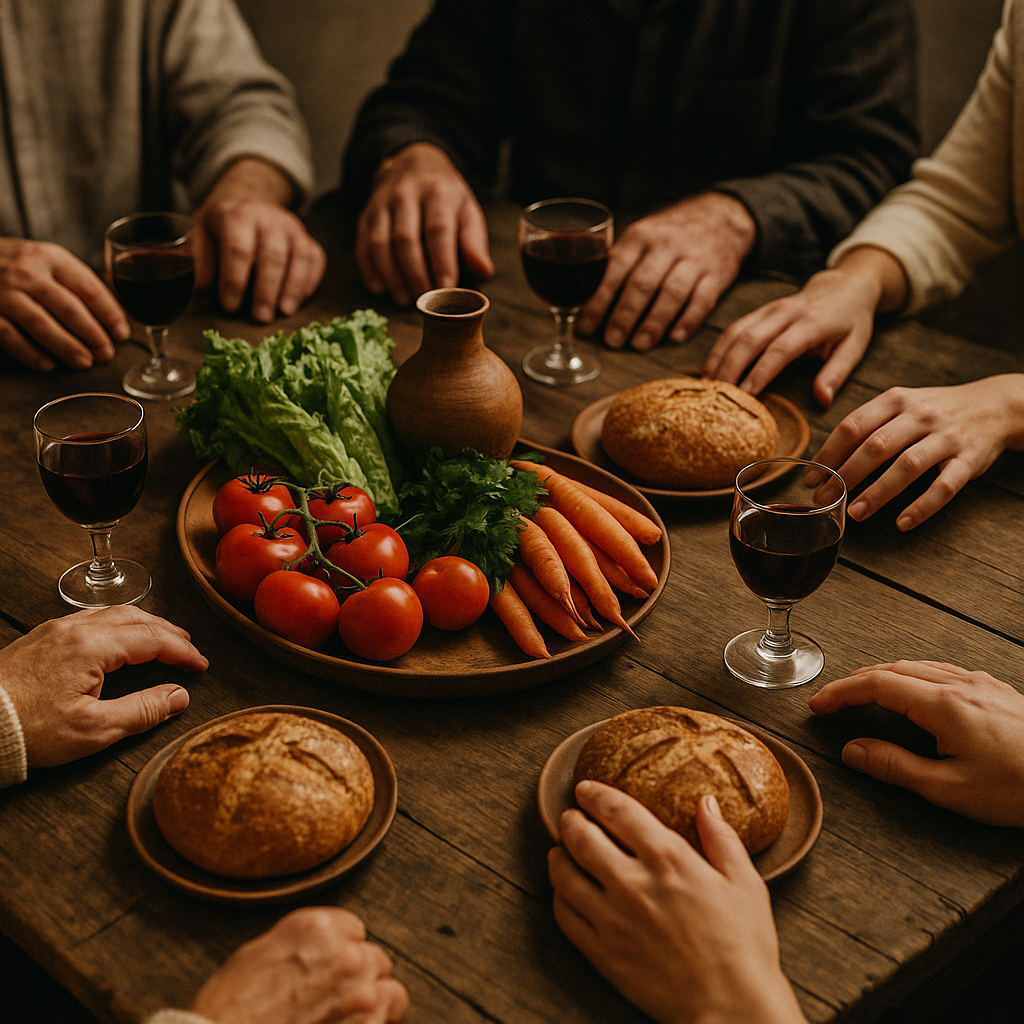
Modern Western culture often prizes efficiency and reductionism. We see this in spirituality reduced to quick prayers and fast Bible reading, and in agriculture reduced to industrial systems and lab-grown food. Both give the appearance of success but leave us malnourished—our souls unsatisfied and our bodies weakened. To flourish, we must return to God’s design: seeking Him in true encounters and honoring His creation in how we eat and grow food.
Creation Order — Life Flows from Living Connection
God created the world with a design for abundance and interconnection. Genesis 1–2 places humanity in a garden, not a factory. Creation was meant to teem with life, with soil, plants, animals, and people bound together in mutual flourishing.
Spiritually, the same principle applies. Our faith thrives not through mechanical routine but through living communion with God. Just as food from healthy soil carries richness lab-grown food cannot, our souls need authentic encounters with God, not just checklists.
Communion — Nourishment Is Both Physical and Spiritual
God nourishes His people through communion, not just consumption. In the wilderness, Israel lived on manna that taught daily dependence on God (Exodus 16). At the Last Supper, Jesus gave His disciples real bread and real wine as a sign of fellowship with Him.
This principle speaks today. Our bodies are designed for nourishment from creation’s richness, and our souls are designed for communion with God. Both are cheapened when reduced to transactions—processed food on one side, rote rituals on the other.
Stewardship — Faith Expressed in Tangible Practices
From the beginning, humanity was tasked to “work and keep” the garden (Genesis 2:15). Stewardship of the earth was always part of worship. Paul reminds us that creation itself is longing for redemption alongside us (Romans 8).
For the church, this means gardening, farming, or supporting local agriculture is not just a lifestyle choice—it can be a faithful practice. Growing food, cultivating soil, and stewarding creation are acts of discipleship that align with God’s design for life.
This is not about nostalgia or hobby, but about recovering God’s principles for flourishing. We need living soil and living Spirit. Shallow substitutes leave us malnourished.
So the call is this: Think bigger. Seek true encounters with God. And re-root your life in practices that honor His creation—like growing food in healthy soil—that nourish both body and soul.
Leave a Reply